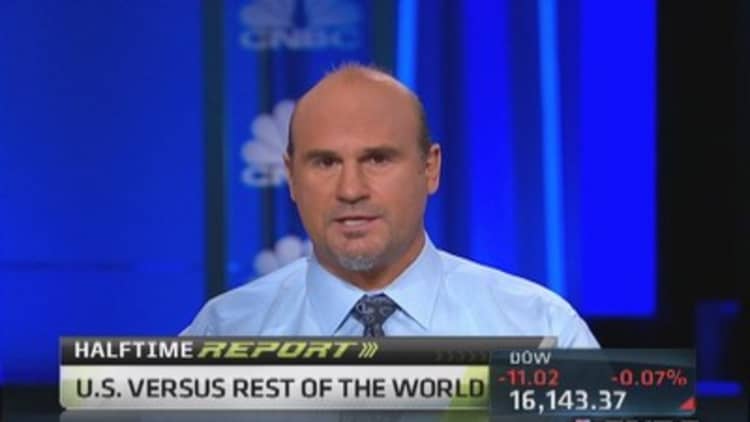Foreigners sold long-dated U.S. securities for a second straight month in December, selling almost all asset classes except Treasuries, data from the U.S. Treasury showed on Tuesday.
U.S. Treasurys posted a net inflow of $17.9 billion in the month after sales of $127 million in November. However, all the other assets showed outflows.
Overseas investors sold equities to the tune of $13.7 billion, up from sales of $7.9 billion the previous month. Agency debt also sold off, with outflows of $15.4 billion, while corporate bond outflows amounted to $7.5 billion.
"The U.S. has been struggling to attract sufficient foreign investments to offset U.S. investments in foreign securities," said Michael Woolfolk, global market strategist at BNY Mellon in New York.
"This has uncovered the deficit in the U.S. current account and the U.S. net foreign direct investment positions leading to a balance of payments deficit and ultimately a weaker dollar."
In total, foreigners sold $45.9 billion in long-term U.S. assets in December, compared with outflows of $28.05 billion the previous month.
Including short-dated assets such as bills, overseas investors sold $119.6 billion, compared with outflows of $13 billion the prior month.

The yield on the benchmark 10-year Treasury note rose to a high of 3.03 percent in December, a month in which investors sold U.S. government bonds as the Federal Reserve announced a gradual reduction in its bond-buying plan.
The dollar, on the other hand, fell 0.8 percent in December against a basket of currencies.
China's holdings of U.S. Treasuries declined $47.8 billion to $1.268 trillion in December.
"My impression is that China's buying of U.S. Treasuries has been severely curtailed since the United States was downgraded in August 2011," BNY's Woolfolk said. "If this continues, then this has implications for both Treasury yields and the dollar."
Japan remains the second-largest holders of U.S. Treasuries, with $1.18 trillion, flat from levels in November.
Japan's central bank is in the midst of an aggressive stimulus program. Analysts expect Japan's quantitative easing to keep the yen weak and push down Japanese bond yields, thus prompting more Japanese purchases of U.S. assets.
--By Reuters

